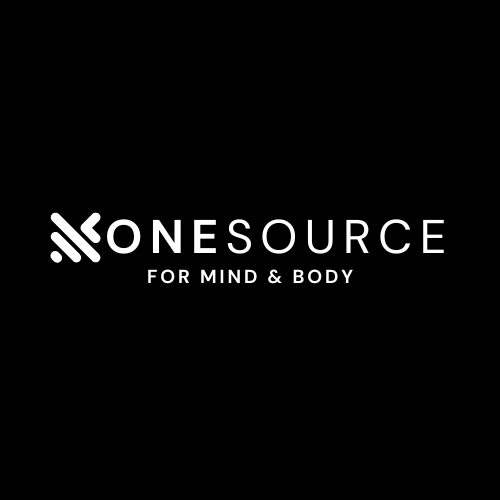A Visit from Family, Time Restricted Eating, and Blood Glucose
Click here: OneSource Health, March 31, 2024
“What makes it great is the personal. How you see the world that’s different from how everyone else sees the world. Thats why you’re an artist. That’s your purpose in sharing your work with the world.”
Rick Rubin
Table of Contents
The Mike’s in the Spaulding Bowl at Copper Mountain
Last weekend my brother and his friend came to visit Jen and I in Colorado and do some skiing. I planned on sending out a newsletter last Sunday, but we were having so much fun that I couldn’t even think about pulling out my computer. Instead I spent my weekend trying to keep up with these guys as they skied non-stop from first chair Friday to last chair Sunday.
In my brother’s own words, “we were like little kids, exploring the mountain looking for fun places to play, and being excited at every turn.”
I also thought that if I was going to practice what I preached (i.e. work life balance, focusing on relationships, and disconnecting), that I should just enjoy the time with my brother, friends, and loved ones in the mountains. I’m glad I did.
There is nothing like the healing power of nature and family.
This is the 19th newsletter. When I started this project in November, I promised myself that I’d push through for at least a year. And that’s what I intend on doing, only it’ll be with a slightly different approach and on a different platform going forward.
I appreciate everyone’s support up until this point. If you wish to continue following me, I’ll be sending out information on how to do that once I get organized in the next 1 - 2 weeks. There is no obligation to sign up. I know the content is not for everyone.
With that said, this week I just have two short pieces to share that I found interesting on the topic of differing views and medias role in shaping perspective.
Thanks again.
Cheers to your practice.
James
There’ always two ways to interpret a study
If you saw a headline last week that went something like, Time-restricted eating linked to 91 per cent higher risk of cardiovascular death, then you should also read Peter Attia, MD’s article Does time-restricted eating increase the risk of cardiovascular death?.
For anyone that doesn’t know, time restricted eating (TRE) is a popular diet technique used by people to lose weight and improve their health (or so they thought). The study looked specifically at the most common TRE approach, 16:8 (fasting for 16 hours, eating for 8).
But, as Attia points out, the study, cited by the BBC and various other media sources, is riddled with flaws. Most glaring of which was the discrepancy in the size of the study groups (414 vs 11,831 participants), and the prevalence of pre-existing conditions (i.e diabetes, dyslipidemia, cardiovascular disease), higher body mass index (BMI), and greater likelihood to be a smoker in the TRE group.
While the BBC acknowledges that the study has not been peer reviewed, scrutinized for credibility and reliability, it didn’t stop them from using the study’s click-bait conclusion as their headline, and never clarifying inconsistencies in the methodology of the study. They only care about eyeballs.
I’ve used TRE a lot in the last decade of my life because it gave me mental clarity and made me feel better physically. I only stopped this past summer when I learned that TRE in healthy males can lower testosterone levels. Other than that all the data I’ve ever seen has been positive.
Regardless, I think the answer lies somewhere in the middle. I think too much of anything, including being too rigid (i.e. demanding your body to eat within a set window) must have negative consequences. I know I’ve found that to be the case in my own life. Whether it be relationships, work, exercise, or diet, moderation and balance always prove to be the better approach. I haven’t mastered it yet, but I try to get closer every day.
But don’t take my word for it. Read both articles. Give TRE a try, if you never have, and see what kind of results you experience.
Two Takes on Glucose and Blood Sugar Spikes
Continuous glucose monitors (CGMs) have been all the rage for a couple of years now. Everyone, including the healthy, are wearing them trying to gain insight into their health. I wore one for 3 weeks in the beginning of this year.
But there are opposing views when it comes to their effectiveness. This article by the Wall Street Journal, Is Glucose the New Gluten? Inside the Blood-Sugar Health Craze, provides a positive view based on anecdotal evidence.
While EC Synkowski, drawing conclusions from a meta-analysis that reviewed CGMs ability to predict cardiovascular disease, noted in her newsletter that wearing a CGM won’t improve weight or “optimize health” (she goes into more detail in this podcast episode from 2019).
Based on my own experience, I’d have to again land somewhere in the middle. Wearing a CGM made me more mindful of my food choices. The more I saw how certain foods impacted my body the more conscious I became. The most fascinating insight I had was learning how much poor sleep quality and quantity negatively influenced my body’s ability to regulate glucose.
I think anything that provides insight into the inner functioning of your body, and how it reacts to various inputs, is a good thing. Whether that’s a blood test, sleep tracker, or wearing a CGM. All the information helps paint a picture of your health.
Big changes don’t occur overnight, rather they are the result of many small changes over a lifetime. So, if a CGM can be the catalyst for one change amongst many, then it is beneficial.
